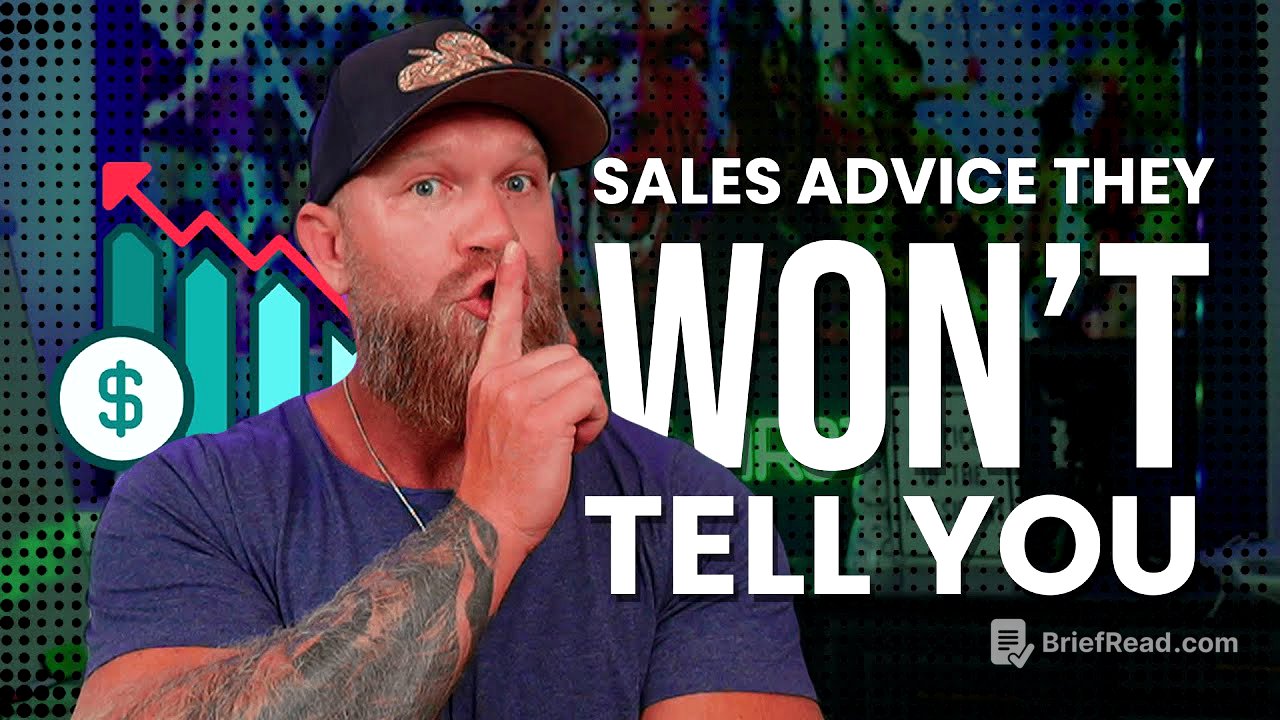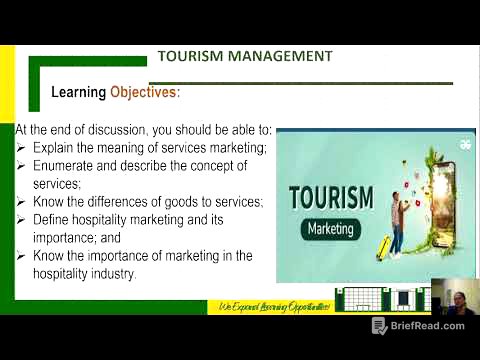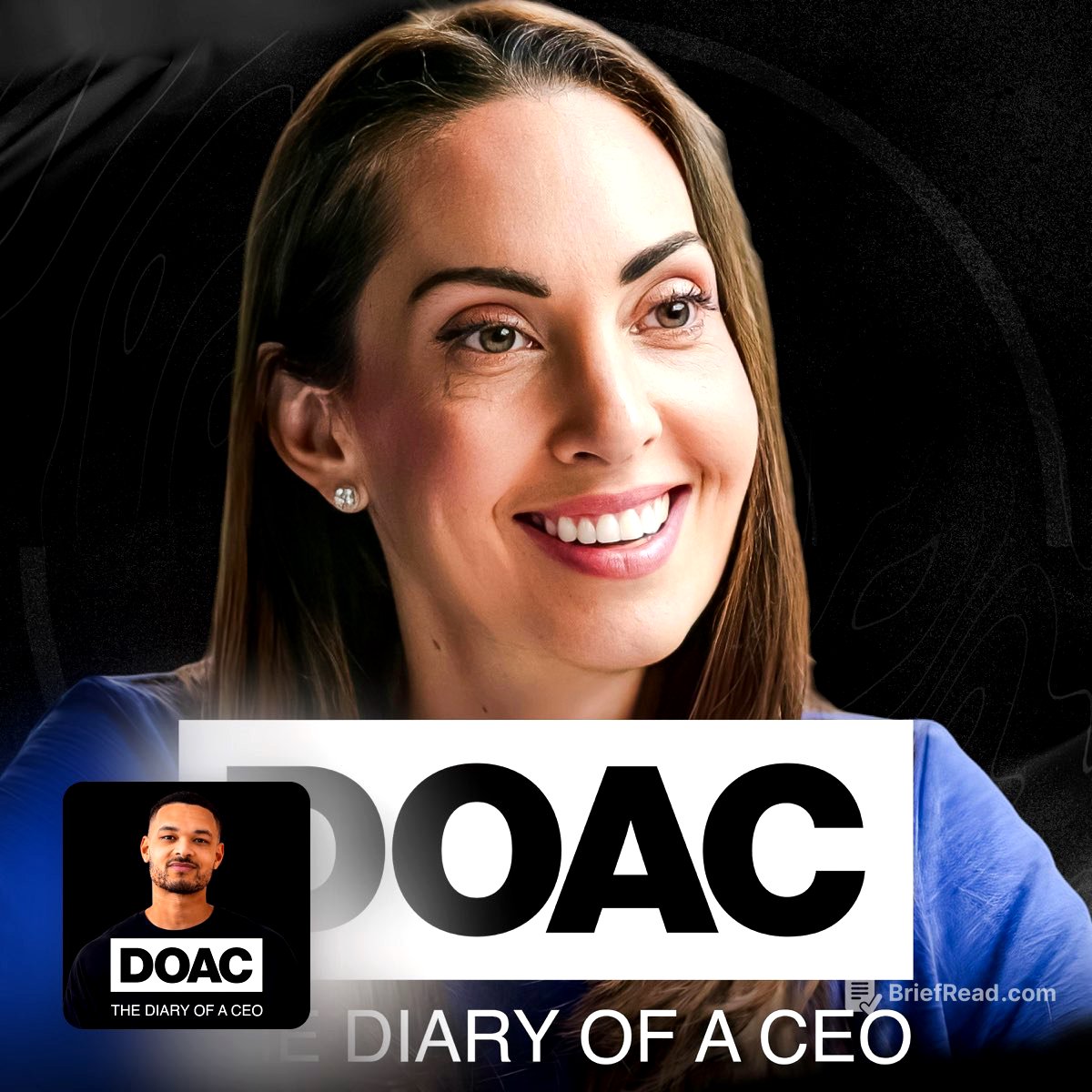TLDR;
This video provides unconventional high-ticket sales advice based on the author's extensive experience. It challenges common sales tactics and emphasizes the importance of understanding the real objections, using tone effectively, maintaining a winner's frame, and transferring conviction to the prospect. Key points include:
- Disarming prospects who claim they are ready to buy early in the call.
- Recognizing that the initial objection is rarely the true underlying concern.
- Prioritizing tone and conviction over rigid sales techniques.
- Maintaining a high-status "winner" frame rather than a subservient "helper" frame.
- Utilizing the power of silence and avoiding the trap of endless "micro yeses."
- Focusing on the future pain of inaction rather than relying on price anchoring.
- Addressing the buyer's fear of the unknown by providing detailed clarity.
- Cultivating unshakable certainty and conviction to transfer to the prospect.
The "Yes" That Costs You the Sale [0:51]
Prospects who immediately express eagerness to buy often present hidden sales resistance. Many closers prioritize financially qualified, inbound calls, but genuine salespeople should engage with all prospects. To handle overly eager prospects, disarm them by acknowledging their interest but emphasizing the need to understand their specific needs before proceeding. Avoid rushing to close the sale; instead, follow a process to uncover their true requirements.
The Real Objection [2:52]
The initial objection voiced by a prospect is rarely their true concern. Salespeople should avoid relying solely on scripted objection-handling techniques. Instead, focus on building rapport and trust to uncover the underlying uncertainty. If you suspect the objection is not genuine, challenge it directly and guide the prospect through a process to reveal the real issue.
Tone Over Technique [4:32]
Effective communication relies more on tone than specific techniques. Calm conviction is more persuasive than excited persuasion. Prospects absorb the salesperson's emotional state and conviction. During the pitch, use a monotone delivery for features and micro tonality for benefits. Authentic tone stems from genuine conviction, which is more impactful than robotic tonal variations.
Winner Frame vs. Helper Frame [6:58]
Maintain a "winner" frame by positioning yourself as a high-status figure. Always be the one asking questions, and if you provide an answer, follow it with another question to maintain control of the conversation. State that you are selective with clients to ensure a successful partnership. Avoid adopting a subservient "helper" frame, as people are less likely to buy from someone they perceive as being of lower status.
The Power of Silent Reframes [8:19]
Silence is a powerful tool in sales. After reframing a prospect's mindset, pause to allow the message to sink in. Avoid immediately filling the silence with rebuttals, as this can sound salesy. Instead, create a comfortable, thoughtful space for the prospect to consider the reframe.
The Micro Yes Trap [9:38]
While gaining buy-in is important, avoid the trap of seeking endless "micro yeses." This can signal disengagement or manipulation. Focus on achieving emotional agreement rather than just logical compliance. If a prospect is agreeing too readily, interrupt the pattern to gauge their genuine interest and ensure real buy-in.
Future Pain Over Price Anchoring [11:06]
Focus on the future consequences of inaction rather than relying on price anchoring or fast-action discounts. Getting a prospect emotionally invested in the potential negative outcomes of not making a change is more effective. Prompt them to describe the state of things in the future if they don't address their current issues. This internal urgency is more compelling than external pressure tactics.
Fear of the Unknown [12:35]
Buyers fear the unknown more than the price itself. Uncertainty is the primary obstacle. Provide detailed explanations of the product or service, including features, benefits, and how it will work, to reduce uncertainty. While being benefit-oriented is crucial, clarifying any vague points and addressing questions thoroughly can alleviate concerns and minimize objections.
The Unshakable Closer [14:06]
Top closers are not necessarily persuasive; they are unshakable in their conviction. Their certainty overrides the prospect's doubts. Sales representatives need high self-confidence and belief in the product or program. Anchoring sales teams to conviction and certainty allows them to transfer these qualities to the prospect, leading to greater success.









